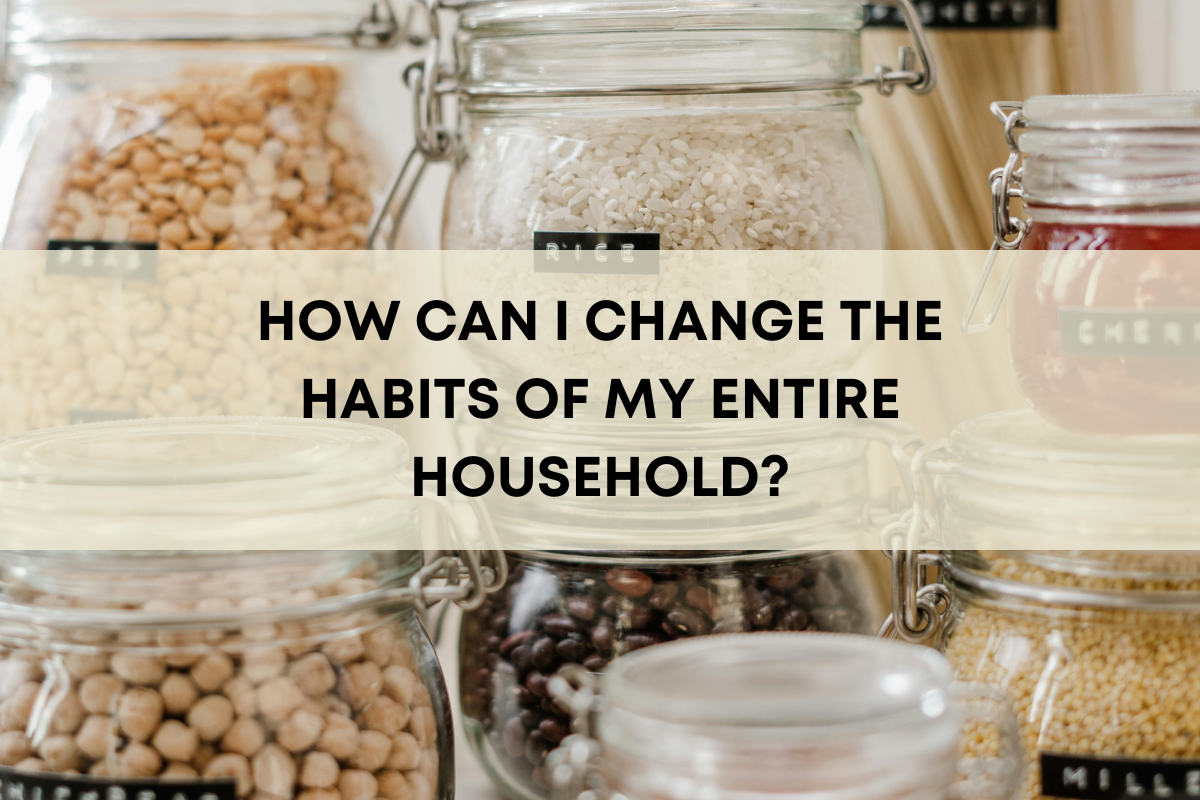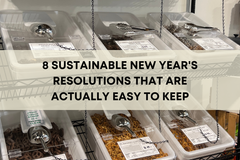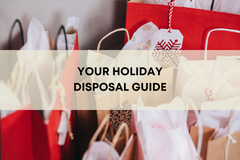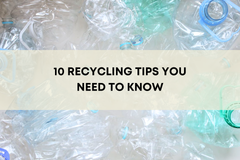How Can I Change the Habits of My Entire Household?

Transitioning your lifestyle to zero-waste can be intimidating. Not only do we feel the pressure of environmental urgency, but we are constantly bombarded with single-use products and plastic packaging. And on top of that, some of us face another challenge: living with people who may be less inclined to change their habits.
My name is Soph, and I am the manager at Tare Market in the Northeast neighborhood of Minneapolis, Minnesota. I am passionate about zero-waste living and I am consciously and consistently adjusting my routine to minimize the amount of trash I produce…and I live with three roommates who curmudgeonly resisted my efforts for a long time. I know I am not the only one to experience this additional strain. Maybe you share a dorm room with a very kind person who has a habit of filling your shared trashcan with cotton balls and granola bar wrappers. Or perhaps some of you live with parents who have had the same shopping list since 1986 and their routine is just as vintage. And maybe sometimes you take your neighbor’s kid out for ice cream and lament the short-lived usefulness of the plastic spoons that admittedly help to improve the amount of dessert that ends up on the kid’s face and in her hair. I have experienced all these moments and have felt powerless in the face of our cultural routine of trash. After moving in with my current roommates, I decided to lead my household in our transition to zero-waste. And after much trial and feedback, I have determined three ideas to start with: product swaps, thoughtful container choice, and preparing for your daily needs.
Swaps
The easiest way to start reducing the amount of waste produced by your household is to swap to reusable or biodegradable versions of products you already use. Routines and rituals don’t have to change at all, only the objects you use to perform them. For example, one of my roommates prepares a pot of coffee for the house every morning (a routine for which we are all extremely grateful), and he used to use a paper cone to filter the coffee in our Chemex. When we switched to a Coffee Sock filter, there was slight protest at first because yes, it does take extra time to dump the grounds into the compost bin and rinse the filter. But ultimately this process takes less than 30 seconds, the coffee tastes better because there is no paper aftertaste, and we don’t have to keep buying filters.
When swapping products, I would recommend finding a sustainable alternative that is as close as possible to what your household already uses. When I was looking for a plastic-free solution for toothpaste, I discovered and fell in love with Unpaste tooth tabs. I found them so practical and easy to travel with—but my roommates couldn’t get over the difference in texture from regular toothpaste. Ultimately, we settled on David’s toothpaste. It’s the same consistency as any other kind of toothpaste, but it comes in a recyclable aluminum tube and includes a recyclable aluminum key to help you get every last squirt of toothpaste out of the tube.
Swapping for lower-waste alternatives does not have to feel like reinventing the wheel; there are products that look and feel just like the things we’re used to and opting for these versions can make the transition to zero-waste feel a lot more comfortable and manageable.
Containers
An important thing to consider—and this might be obvious—making sure that your reusable containers are clearly labeled with the name of their contents makes it easier for everyone in your household to stay in-the-loop with your packaging-free purchases. A few months ago, I picked out a pretty-looking bottle from the community jar kiosk at Tare Market, where we keep containers donated by customers. I filled the bottle with apple cider vinegar, not paying any mind to the fact that the bottle was labeled as “French Vanilla Syrup.” Long story short, my roommate ended up with a particularly tangy “vanilla” latte the next day. A piece of tape and some sharpie ensured that no one made that mistake again.

Though it can be fun to make plans for bulk shopping and search for the perfect little jar for Earl Grey or the perfect tub for dried mangoes, this is another instance where you don’t have to start from scratch. You can refill the containers that you already have—those that may already be correctly labeled with their contents. Chances are, you have a soon-to-be empty bottle of laundry detergent sitting on your washing machine or a lingering jar of peanut butter on the shelf with one last spoonful inside. Bring these to Tare Market or to the bulk section of your local co-op and refill them over and over again! And your housemates will already be familiar with the jugs, bottles, and boxes, so there will be no confusion over what’s what.
Take Time to Prepare Together
An important step to reducing your household’s waste is to plan and prepare for what you will need throughout your day and week. This can seem like a big adjustment because, rather than swapping objects within the same routine, you and your household will have to slightly adjust your routine to accommodate for communication and planning time—but even so, it’s only a few minutes per day and week, and it makes a huge difference.
At my house, we risk producing the most waste in our kitchen, specifically from packaged foods. We started with a discussion about people’s work schedules and routes through the city to determine who picks up which items and from where. Considering everyone’s individual routine, we were able to map out who does the weekly Tare Market haul, who stops by the co-op to pick up produce, who reminds that person to bring the cotton produce bags, and who goes to Costco to get the last straggler items in bulk. It took a few tries to smooth out the process (and for everyone to remember their reusable shopping bags), but we’ve settled into a good rhythm. And, although it was not an easy transition for everyone, it makes each of us feel good to have a personal responsibility toward our home co-operation.
We also take turns making dinner and therefore share the task of prepping each other’s lunches. There are three of us who eat lunch away from home, and so we know to prepare and pack extra portions every night. It’s small rituals like this that make a huge impact on our household waste—we help feed each other so that no one is scrambling the next day to find something to eat and eventually settling on a store-bought granola bar or pasta salad. We eat our yummy leftovers and then come home to put our lunch containers and Stasher bags in the dishwasher to use the next day.
Accountability is on the flip-side of preparation. Even if you make a concerted effort to plan ahead for your needs, a gentle reminder can still be helpful. My roommates and I like to go on walks and little excursions together. When we walk over to our local coffee shop, I bring my collapsible coffee cup and remind everyone else to bring their mugs and thermoses. Likewise, when we go out for a picnic, I always have to be reminded to bring a container for food scraps—like a mini compost bin—to carry apple cores and carrot butts home to our green bin.
It can be tough to plan and communicate with the people you live with. We’ve certainly had our roommate spats at my house, as I can imagine you have had with your cohabitant(s). The most important thing to consider is that people make mistakes, and it doesn’t mean that they’re not trying to adopt new habits or that they don’t care about the environment or about their impact on it. Someone will forget their shopping bag, their reusable straw, or they might forget their lunchbox and leave it in the fridge. This is all okay, and it happens to everyone! Be gentle in your encouragements to the people you live with, because the most important thing is that we all remain motivated to keep trying, to keep improving, and to grow together. This brings me to…
Compromising
It’s necessary. Every person is different, has different needs and different preferences. I tried for months to go paper towel-free and have my household rely on rags and Unpaper Towels. I even offered to launder them myself (though I admittedly struggle to remember sometimes). My roommates, though sympathetic to the plight of trees and forests, just can’t shake the habit of buying and using paper towels. So we compromised: I use my cloth alternatives, they continue to use paper towels, and they compost the used ones (so long as they didn’t wipe up anything chemical or animal).
Likewise, it’s hard to deny that Doritos and Sour Cream & Onion Lays are the ~perfect~ snacks to accompany a late-night game of Mario Party. (Perhaps I’ve lost some of you on this one, but I’m sure your housemates have a beloved snacking-and-entertainment combo, too.) These crunchier snack foods are typically not sold in bulk because they go stale so quickly, and thus we accumulate chip bags at my house. Though I’m not thrilled with this waste, I can usually find a Terracycle box somewhere in the city where I can recycle the wrapping and it will eventually be processed into something useful. These compromises allow me to advocate for other positive changes at home—because people are less-inclined to work with you when they’re hangry for their favorite things.
Every Little Bit Counts
Maybe you’re only able to successfully swap one or two items in your household. You’ve convinced the roommates about toothpaste tablets, but they draw the line at floss. You’ve gotten your kids hooked on dried pineapple, but they still ask for their puffed cereal every now and again. And your mom’s favorite iced tea only comes pre-bagged, but she now uses a metal straw to drink it. Guess what? One little change is a HUGE step forward. Any bit of plastic or single-use trash that we can eliminate from our waste stream is a victory for our community and our planet. It is noble and difficult to put effort towards cutting down on your waste, and even more so to try to change the habits of those around you. Making these zero-waste options convenient and accessible for your housemates, clearly labeling containers to eliminate confusion, preparing together to accommodate everyone’s needs are all essential in the endeavor of reducing the trash produced by your household.
And during this transition, as with all group undertakings, be kind to one another. We need everyone on board to make positive, incremental change, and that starts with how we relate to each other. Because, after all, human beings are just as much a part of the environment as our beloved lakes, forests, beehives, and herds of deer. To care about the health of nature is to care for each other—so be patient, work together, and grow.
Recent Blog Posts
Discover more tips on living #ZeroWaste!
-

8 Sustainable New Year's Resolutions That Are Actually Easy To Keep
Sustainable New Year’s resolutions don’t have to be overwhelming. These 8 simple, realistic habits make it easier to reduce waste, shop more intentionally, and build low-waste r...
Read more -

Your Holiday Disposal Guide
The holidays can generate a lot of extra waste, but much of it doesn’t need to end up in the landfill. This holiday disposal guide breaks down what can be recycled, composted, r...
Read more -

10 Recycling Tips You Need To Know
Recycling can be simple, but small mistakes can contaminate your recyclables and reduce their impact. In this guide, we share 10 practical tips to help you recycle smarter, from...
Read more





